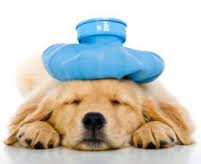 You can now have your dog’s or horse’s health tested at True Medicine. We are happy to announce the availability of Hair Tissue Mineral Analysis for dogs and horses.
You can now have your dog’s or horse’s health tested at True Medicine. We are happy to announce the availability of Hair Tissue Mineral Analysis for dogs and horses.
The correct mineral balance is important for all animals, including healthy dogs and horses. Minerals have many crucial functions, including acid-base or pH balance, bone and joint structure, enzymatic reactions, energy metabolism, antioxidant support and hormonal functions. Nutritional mineral needs are increased during the lifespan: infancy, pregnancy, lactation and during hard work. Hair Tissue Mineral Analysis (HTMA) can aid in determining what minerals are in excess and deficiency, and reveal any toxic mineral levels.
Imbalances may be linked to behavioural problems, arthritis, sluggishness, aggression, skin irritation and more.
Tests are non-invasive, easy and inexpensive.
Nutritional needs
Like humans, dogs require water protein, fats, carbohydrates and fibre, vitamins and minerals. Nutritional minerals in canine health can be classified into three major categories: macro minerals (sodium, potassium, calcium, phosphorus and magnesium) requiring gram amounts per day; trace minerals (iron, zinc, copper, iodine, selenium and chromium) which are required in mg or mcg amounts per day; and additional trace minerals (cobalt, molybdenum, vanadium, nickel, lead and tin) which have an unclear role in animal nutrition.
Unbalanced diets in dogs can lead to calcium and phosphorus deficiencies. High meat diets are high in phosphorus and low in calcium, while diets high in phytates can inhibit the absorption of trace minerals. Insufficient supplies of calcium or excess phosphorus can decrease calcium absorption and can result in irritability, hyperesthesia, loss of muscle tone, with temporary or permanent paralysis associated with nutritional secondary hyperparathyroidism. The requirements for dietary calcium and phosphorus are increased over maintenance during growth, pregnancy and lactation.
Other mineral imbalances may include magnesium, iron or copper. Each have essential functions within the cells and deficiencies can lead to serious health issues.
Equine dietary requirements differ considerably from that of canines. Horses can use hay and other roughage as nutrient sources more efficiently than other non-ruminants.
Toxicity in animals
Heavy metals are ubiquitous in our environment. Horses and dogs can be regularly exposed to both natural and man-made sources of heavy metals. Food sources, purity of water sources and medications can all be contaminants that have the ability to affect nutritional mineral levels. 
Dogs can potentially come into contact with heavy metal sources in a variety of situations. Ceramic food and water bowls that are poorly glazed have been known to contain lead and cadmium. Pet food can also be a source of contamination. A study from 2011 found that the concentrations of toxic metals were highest in dry food vs wet food, and that dry food had the highest levels overall. Arsenic, cadmium, mercury, thallium, uranium and vanadium were all found in significant levels in various dog foods. Other sources of contamination includes toys, collars and cleaning products.
 Horses also come into contact with a variety of potential sources of heavy metals. Soil can be a source of naturally occurring heavy metals as well as heavy metals from industrial exposure or runoff, fertilisers, pesticides, herbicides and fungicides.
Horses also come into contact with a variety of potential sources of heavy metals. Soil can be a source of naturally occurring heavy metals as well as heavy metals from industrial exposure or runoff, fertilisers, pesticides, herbicides and fungicides.
Drinking water is also a possible source of contamination. Water piped through lead or copper pipes, tank and bore water can all possibly contain heavy metals. Feeds, either forage or supplementary feeding can contain high levels of aluminium, arsenic, cadmium, mercury, nickel and lead.
Animal HTMA reports
The correct mineral balance is as important for animals as it is for humans. HTMA is the ideal way to test nutritional and toxic minerals, by a non-invasive method. Equine and canine tests are all reported as a complete comprehensive interpretive report. The equine and canine reports include information regarding metabolic typing, endocrine and performance indices and mineral imbalances.
How do you order a test
Call the clinic on 07 55301863 to arrange collection of a kit and instructions on how to take a viable sample.
